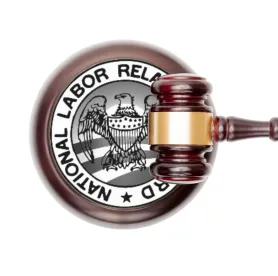On August 14, 2019, the National Labor Relations Board (NLRB) issued a ruling clarifying several mandatory arbitration issues following the 2018 decision by the Supreme Court of the United States in Epic Systems Corp. v. Lewis. In Cordúa Restaurants, Inc., 368 NLRB No. 43 (2019), the NLRB ruled,
-
Employers are not prohibited under the National Labor Relations Act (NLRA) from informing employees that failing or refusing to sign a mandatory arbitration agreement will result in their discharge.
-
Employers are not prohibited under the NLRA from promulgating mandatory arbitration agreements in response to employees opting in to a collective action under the Fair Labor Standards Act or state wage-and-hour laws.
-
Employers are prohibited from taking adverse action against employees for engaging in concerted activity by filing a class or collective action, consistent with the Board’s long-standing precedent.
The Key Takeaway for Employers That Want to Adopt a New Arbitration Agreement
Employers often face a number of questions when rolling out an arbitration agreement containing a class action waiver. One of the most common is whether they can require current employees to sign the agreement in order to remain employed. According to the Board in this new decision, the answer to that question is yes. The Board found that nothing in the NLRA prevents an employer from discharging an employee who fails or refuses to sign an arbitration agreement/class action waiver.
Pitfalls to Avoid
When drafting and rolling out a mandatory arbitration agreement with a class/collective action waiver, there are a few actions employers might take to avoid running afoul of the NLRA or other laws. The Board’s new decision tells us that the NLRA does not prohibit an employer from rolling out a new arbitration agreement and class action waiver in response to a pending class or collective action lawsuit. But employers should know this isn’t the whole story. Employers may still want to be cautious in adopting a new class action waiver when a class action is pending.
Even if the NLRA would not prohibit rolling out a new agreement in these circumstances, there are other risks. For example, the court overseeing the class litigation might view the adoption of a class action waiver as interfering with the court’s management of the class litigation. That could result in a court ordering the employer to rescind the arbitration agreement/class action waiver and issue a corrective notice to the putative class. To avoid this result, one prudent approach would be to carve out any pending class litigation when adopting a new arbitration agreement/class action waiver.




 />i
/>i

